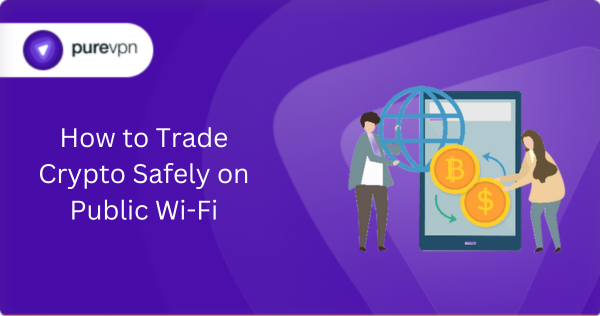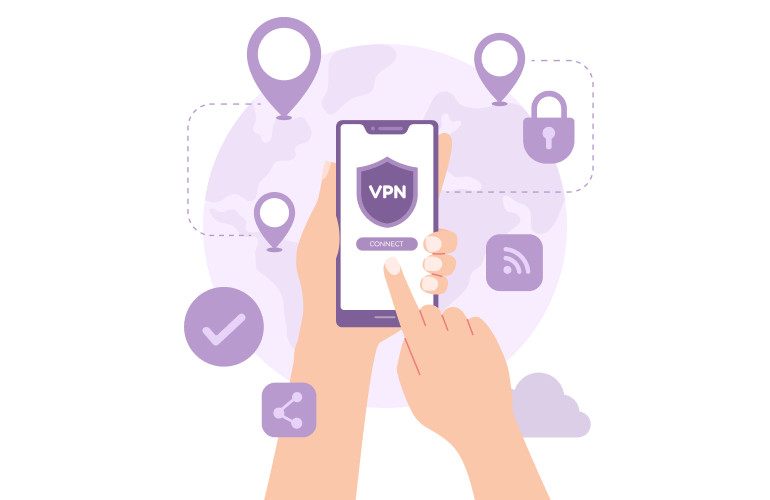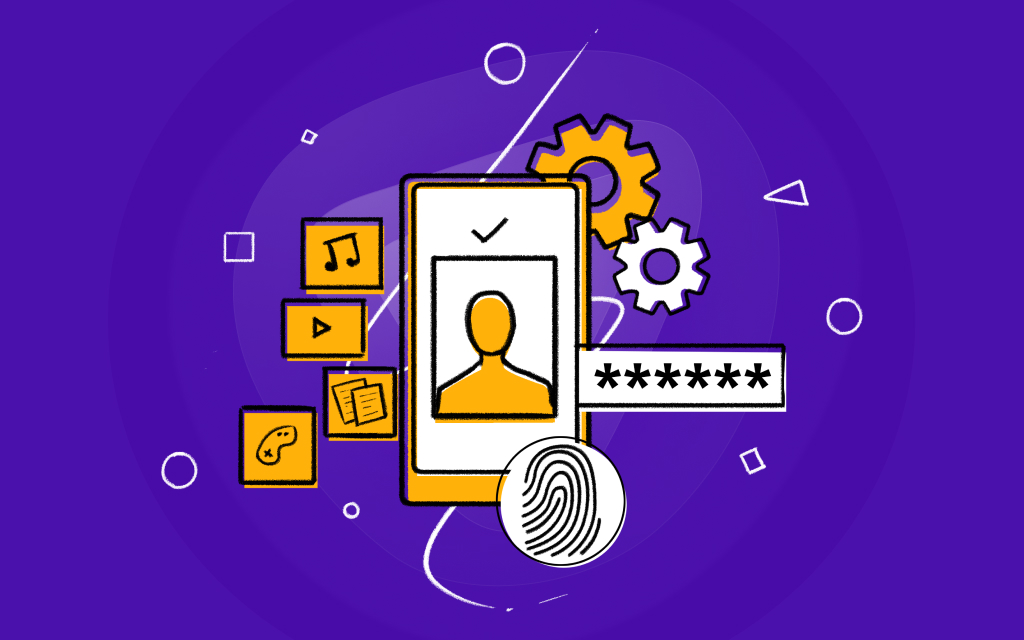Trading cryptocurrency can be an exciting and profitable venture, but it also requires a heightened awareness of security risks. Public Wi-Fi networks, while convenient, are often targeted by cybercriminals looking to intercept sensitive data, such as passwords, transaction details, and wallet keys.
When you trade crypto, you’re dealing with assets that hold significant value. This makes your personal and financial information a prime target for hackers. Without proper security measures, using public Wi-Fi can expose your trades to threats like data interception and account compromise.
According to a survey by All About Cookies, one in four people (24%) who access public Wi-Fi daily have experienced a security issue as a direct result of using these networks. To protect your assets, it’s essential to understand how to securely trade crypto even in these less-than-ideal network environments.

Understanding the risks of public Wi-Fi
Public Wi-Fi is often seen as a quick and convenient way to connect to the internet, but it comes with significant security risks. These networks typically lack proper encryption, making it easy for hackers to intercept your sensitive data. When using public Wi-Fi, you’re exposed to a wide array of threats that can compromise your privacy, personal information, and digital assets:
Man-in-the-middle attacks
A common threat on public Wi-Fi is the man-in-the-middle attack. In this scenario, attackers intercept communication between you and the intended service. They can then alter or capture sensitive data, such as login credentials or transaction details. For crypto traders, this means that hackers could potentially steal your private keys, gaining access to your funds.
Evil twin attacks
In an evil twin attack, cybercriminals set up a rogue Wi-Fi access point that appears to be a legitimate public network. Unsuspecting users connect to this fake network, allowing attackers to monitor their activity and steal data. Since crypto exchanges and wallet services involve frequent logins and transactions, this could give hackers access to your accounts and funds.
Session hijacking
When you’re logged into a website or trading platform, your device communicates with the server through a session token. On unsecured networks, hackers can steal this session token and use it to hijack your active session, which could lead to unauthorized trades or transactions being carried out in your name, putting your crypto holdings at risk.
Data interception
Without encryption, the data you send and receive over public Wi-Fi is vulnerable to interception. Hackers can capture sensitive information such as your wallet address, personal identification details, and transaction history. For crypto traders, this is a serious concern, as it puts their wallet and trades at risk of being compromised.
Malware distribution
Public Wi-Fi networks are sometimes used as a channel for distributing malware. Attackers can inject malicious software into the devices of connected users, often without their knowledge. Once installed, malware can compromise your device, track your activities, and capture sensitive crypto trading information.
Best practices for trading crypto safely on public Wi-Fi
While public Wi-Fi may be convenient, it’s important to take extra precautions when trading cryptocurrencies to protect your assets:

Use a VPN
A VPN is one of the most effective tools for securing your data on public Wi-Fi. It encrypts your internet connection, making it much harder for hackers to intercept your data. When connected to a VPN, your internet traffic is routed through a secure server, preventing attackers from seeing what you’re doing. For crypto traders, this adds an essential layer of protection to safeguard your login details and wallet information.
Related Read: Best VPN for Crypto Trading
Enable two-factor authentication

Two-factor authentication (2FA) adds an extra layer of security to your crypto accounts. Even if a hacker manages to steal your login credentials, they won’t be able to access your account without the second factor, usually a temporary code sent to your phone or email. Always enable 2FA on your exchange accounts and wallets so that your funds remain secure, even on a compromised network.
Use trusted wallets
Not all crypto wallets are created equal. When trading on public Wi-Fi, it’s particularly crucial to use trusted, secure wallets that offer strong encryption and protection against phishing attacks. Hardware wallets, like Ledger or Trezor, are ideal because they store your private keys offline, making them virtually immune to remote hacks. If you’re using a software wallet, make sure it’s from a reputable source and keep it updated regularly.
Avoid using exchange apps
Accessing your crypto exchange app over public Wi-Fi is a risky endeavor. Exchange apps often require you to log in frequently and make transactions, which could expose your credentials to hackers. Instead of using the app, consider accessing exchanges using a trusted VPN service or your mobile hotspot, or consider waiting until you’re on a more secure network to carry out transactions.
Verify the network before connecting
Before connecting to a public Wi-Fi network, always double-check that you’re connecting to a legitimate network. Avoid networks with suspicious names or those that don’t require a password. In airports, coffee shops, and other public spaces, be sure to ask staff for the correct network name to avoid falling victim to an evil twin attack, which makes it easier for hackers to get their hands on your sensitive info.
How a VPN enhances security while trading crypto
Public Wi-Fi networks are easy targets for cybercriminals, and without protection, your connection is wide open. This is where a VPN steps in. It creates a secure, encrypted tunnel between your device and the internet, shielding your online activity from anyone trying to snoop.
For crypto traders, this means your logins, wallet credentials, and transactions stay hidden from potential attackers on the same network. Even if someone is monitoring the public Wi-Fi you’re connected to, they won’t be able to read or tamper with your data.
Some VPNs also offer features like kill switches (which cut off internet access if the VPN connection drops), and dedicated IPs—useful for whitelisting access to exchanges. All of these reduce the chances of being caught off guard by unexpected network exposure.
In short, a VPN keeps your crypto activity invisible and makes it significantly harder for bad actors to compromise your accounts, especially in places where you’re most exposed such as public Wi-Fi networks.
Other security measures to consider when trading crypto
Here are other key steps to strengthen your security while trading crypto:
- Keep your software updated: Make sure your device’s operating system, apps, and crypto wallets are always up to date. Security patches fix known vulnerabilities that hackers often exploit.
- Use a hardware wallet: For added protection, store your crypto in a hardware wallet rather than keeping it on an exchange. These wallets keep your private keys offline and out of reach from network-based attacks.
- Avoid auto-connecting to networks: Disable automatic Wi-Fi connections on your devices. This prevents your phone or laptop from connecting to rogue networks without your knowledge.
- Be cautious with browser extensions: Many browser extensions have access to your online activity. Avoid installing untrusted or unnecessary extensions, especially while accessing wallets or exchanges.
- Use strong, unique passwords: Always use complex, unique passwords for each crypto-related platform. A password manager can help you generate and store them securely.
- Enable login Alerts on exchanges: Set up alerts for account logins or transactions. This gives you immediate visibility if someone tries to access your account without permission.
- Avoid public devices: Never access your crypto accounts from public computers. These may have keyloggers or spyware installed, compromising your credentials instantly.





